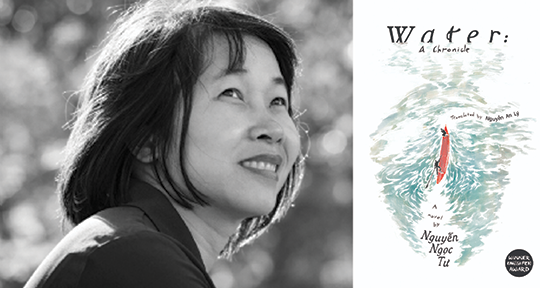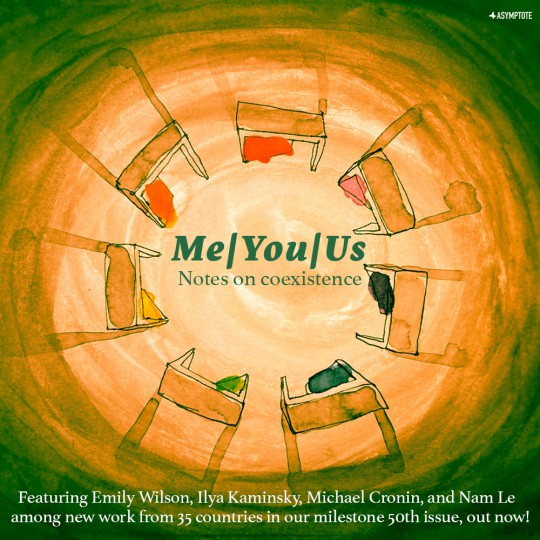“Isn’t language this delirious net of ten thousand dewdreams hovering about our eyes, this mantle, this riddle, of lifelong sleep?” writes Quyên Nguyễn-Hoàng in “A Poetics of Sleep #2: the (no) center of writing,” one of two poems by the writer and translator published in Asymptote’s Winter 2025 issue. The poems, which were self-translated by the writer, inhabit shifting, liminal spaces—between sleeping and waking, between one language and another. In her translator’s note, she writes, “Self-translation is a flexible zone where I hope neither language settles into conclusiveness.” That resistance to conclusiveness is one of the joys of her poetry. In this interview, Asymptote’s Assistant Fiction Editor Catherine Xinxin Yu speaks to Nguyễn-Hoàng about the poetics of hauntings, visual symbolism in her poems, and living vigorously in translation.
Catherine Xinxin Yu (CXY): Your poems in our Winter 2025 issue absolutely blew my mind with their oneiric flow and virtuosity. Is A Poetics of Sleep an ongoing series?
Quyên Nguyễn-Hoàng (QNH): “A Poetics of Sleep” is sort of a triptych. The two poems on Asymptote are two out of the three panels of this sleep triptych that I wrote one sleepless night not long ago. The writing felt like one flow of breath. It was winter. I was in bed, under my soft blanket, cradled on the edge of sleep, a kind of open-eyed sleep, a very wakeful kind of sleep. So, in a way, this poetics is ongoing within me whenever I recall this strange consciousness of the body and mind falling into sleep while still writing, rambling, chanting sleep into literature.
CXY: What are the differences between translating yourself and others, and between translating into English and into Vietnamese? On a more personal note, what kind of relationship do you have with the languages you know, and what role do bilingualism and code-switching play in your life?
QNH: When I translate others, I can’t alter their original; it’s not allowed and I also don’t wish to alter the texts I translate. But when I translate myself, I often compulsively, happily, sometimes carefully, sometimes carelessly change my ‘original’ words. So, in my zone, translations and original writings live on rather permeable lands.
I speak Vietnamese and English, both of which seem to stray further and further away from my grasp the longer I live with them. Which is to say, I master neither of them. With a dictionary, I can read a few lines of Chinese and French, two languages that influenced the formation of Vietnamese, two former masters you could say. It’s hard to summarize one’s relationship with language, but since I brought up mastery, I suppose one ongoing question, for me, is how to neither master nor be mastered by language. When I write in a state between sleep and wakefulness, it feels like a way of joining the power, the magic, of language without having to work out the question of mastery, which, for me, often seems to narrow instead of expanding the heart.
CXY: I was intrigued by the recurring allusions to the supernatural and the subconscious in A Poetics of Sleep: hauntings, divination, ghost ships, ceaseless phantoms, poetry-sutras and poet-chanters, angel-ancestors + other electric apparitions, dewdreams and feverdreaminess and sleeptalking. . . Could you talk more about the poetics of hauntings and liminality in your writing?
QNH: A mouth holds many hauntings, a mouth holds many ghosts. Familial ghosts, national ghosts, literary ghosts, art historical ghosts, war ghosts, immigration ghosts. All these ghosts cross into my porous peace and poetry all the time, without my control. Ghosts and I, we learn to live together. Which I guess is what many humans do. We are remembered and joined by ghosts, which flow through us. The pains and joys of the past don’t die; they go on. They eat with us, work with us, mess with us, play with us.
CXY: I love the visual symbolism in your use of the connective/cumulative + sign and the centripetal potentiality of “the O”. How did you come up with them? Also, you marked stanzas in “a river secretes many mouths” with ascending then reversing numbers. What’s your thinking behind this?
QNH: The “O” can be the moon, the seed, the mouth, the bindi, the gourd, the belly, the omelette, the tired curl of the body asleep, all kinds of zero-degree releasements, all manners + mantras of forgetting, all the ways of tracing + saying nothing + everything at the same time. I wonder how readers mouth the “O” in their own different way. When I was a teenager, I used to smoke, and the “O,” back then, was simply the unstable shape and silent sound I made when I exhaled smoke rings into the air on some afternoon of adolescent ennui. A shape of aimless dreams. A circular shape can hold many memories.
The + sign, as a connective and cumulative kind of tissue, came from many memories and influences, one of which is the work of Rose B. Simpson, where the + signs are directional stars, efficacious as amulets. I also think of them as the memory of wounds that unmake us, the sacred scars that grow to protect us.
CXY: Could you share some works that have shaped your translation practice?
QNH: My translation practice is shaped partly by my family of polyglots. I grew up in the nineties listening to my father speaking and bowing in Japanese at work, watching my aunt and uncle reminisce about studying abroad in the Soviet Union, wondering about the life of my grandfather, an occasional translator, who co-translated Sholokhov into Vietnamese from not Russian but French. Meanwhile I myself was learning about conjugation in English from my stay-at-home mom, both of us living vigorously in translation without ever naming it as such.
Quyên Nguyễn-Hoàng is a writer-translator and occasional art curator born in Vietnam. She is the author of Masked Force (Sàn Art, 2020), a lyrical pamphlet interleaved with the war photographs of Võ An Khánh. Her translations include Chronicles of a Village (Yale University Press, 2024) by Nguyễn Thanh Hiện and https://everything.is/ by Samuel Caleb Wee (AJAR Press, 2024). Her poetry and essays have appeared in Modern Poetry in Translation, Jacket2, Poetry, and other venues.
Catherine Xinxin Yu (she/they) is a literary translator working with English, Chinese, and Italian. She is interested in literature from Taiwan, Hong Kong, and Italy, especially works that explore ecology, gender, indigeneity, and diaspora. Her translations and writing appear or are forthcoming in Asymptote, The Oxonian Review, This Is Southeast Asia, La Piccioletta Barca, and Full Stop Magazine. More about them @riso.allegro on Instagram and on www.cxxyu.eu.

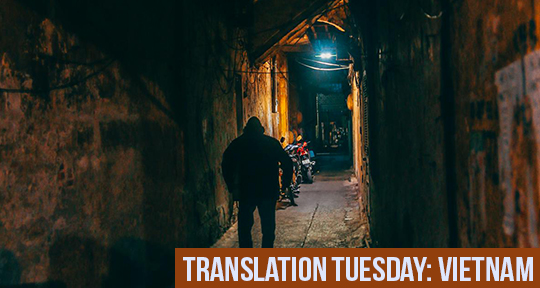
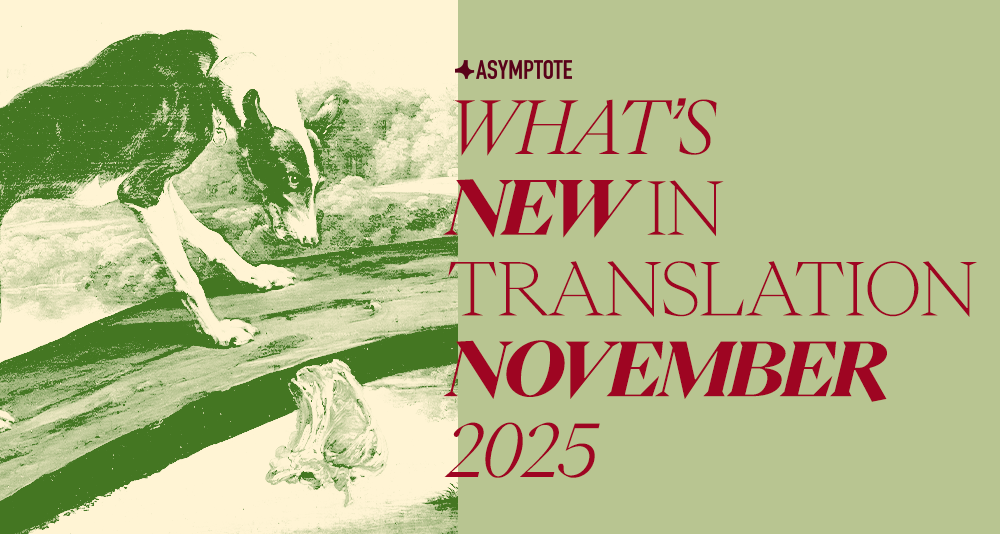

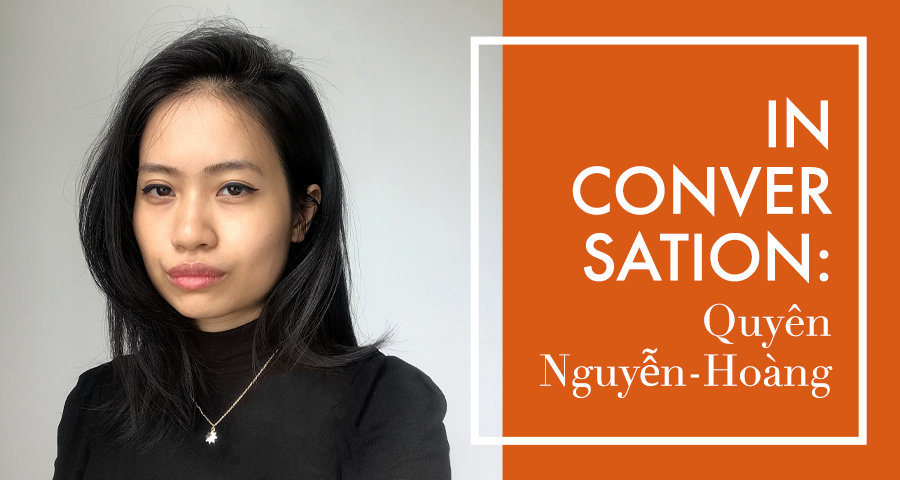


 This spirit of formal ambition is by no means limited to our Special Feature. After all, “as the reality of each time changes,” says
This spirit of formal ambition is by no means limited to our Special Feature. After all, “as the reality of each time changes,” says 


